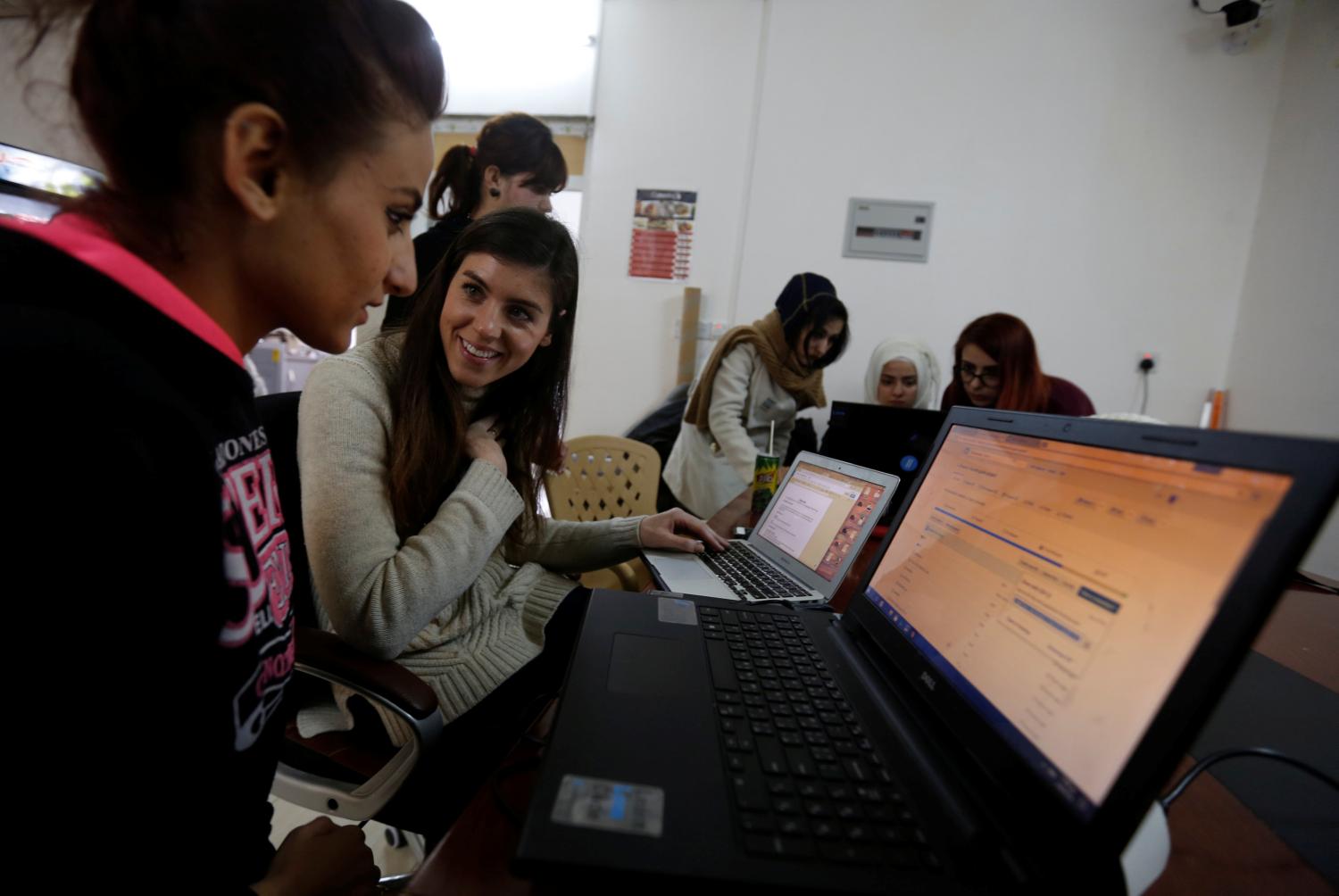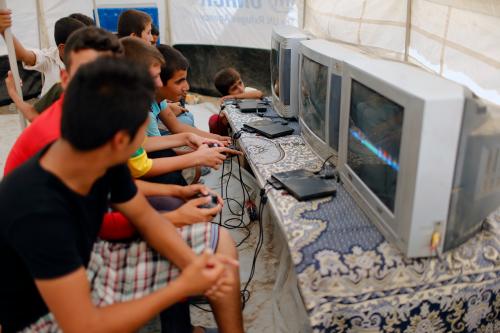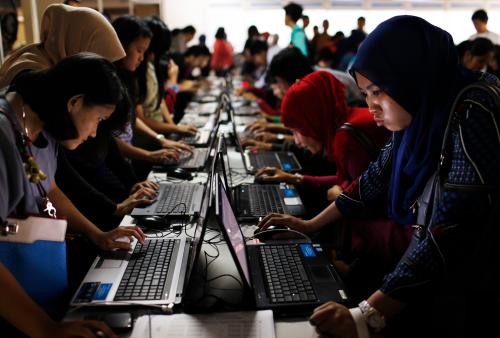On Monday, September 19th, during the 71st session of United Nations General Assembly in New York City, the Center for Universal Education at Brookings and the LEGO Foundation hosted a reception to highlight Skills for a Changing World. The topic of discussion included the current global efforts that are building momentum toward realizing high quality learning opportunities—and ultimately the breadth of skills needed for vibrant, healthy societies.

Senior Fellow Kathy Hirsh-Pasek kicked off the event with an engaging activity to get participants to think about their everyday spaces through a new lens. The audience was tasked with taking a closer look at images of a supermarket aisle, then to reimagine how this everyday space can become a learning opportunity for parents and caregivers to engage their children.

Following Hirsh-Pasek’s opening activity, Rebecca Winthrop, senior fellow and director at the Center for Universal Education at Brookings, and Hanne Rasmussen, CEO of the LEGO Foundation, provided opening remarks emphasizing the urgent need for a concerted effort for more research and action to ensure children can cultivate a broad range of skills in and out of the classroom. Anya Kamenetz, the lead education blogger from NPR, moderated a panel that included, Kate Anderson, project director and associate fellow at the Center for Universal Education at Brookings, Joyce Kinyanjui, program manager of Women Educational Researchers of Kenya and 2016 Echidna Global Scholar at the Center for Universal Education at Brookings, and Julia Gillard, distinguished fellow at the Center for Universal Education at Brookings and member of the International Commission on Financing Global Education Opportunity.

Kate Anderson started the panel discussion by introducing the newly released report and interactive, Visualizing the breadth of skills movement across education systems, which is a data visualization and analysis of the global movement toward inclusion of a broad range of skills within national education policies. Esther Care, Kate Anderson, and Helyn Kim, the authors of the report, found that there is “compelling evidence of a shift in education systems toward broadening the provision of education beyond traditional disciplines—beyond a focus on literacy and numeracy alone.”
With over 100 countries represented in the map, the project team is encouraging others to explore the map and help complete the study by contributing any missing data through the online contribute form on the interactive website.
On the heels of the International Commission on Financing Global Education Opportunity report launch at the U.N. just the day before, Julia Gillard spoke about the education commission’s findings that emphasize the need for breadth of skills in a changing technological and globalized world. Gillard discussed the changing nature of work and the growing demand for high-skilled workers and the need for both education systems and industries to ensure that those in the low- and medium-skilled workforce are not left behind. Joyce Kinyanjui left the audience with a searing real-life example from her home country of Kenya, where students are burning schools in protest rather than using negotiation and problem-solving skills to approach the challenges they are up against.

The discussion left the audience with both confidence—in the progress we have made as researchers, practitions, and policymakers in equipping children with the breadth of skills needed to face the changing social, technological, and economic realities—and anticipation of the work that is still left to be done.
With the Skills for a Changing World project, our goal is to support the existing momentum seen around the world and to help contribute to greater collaboration across networks and between stakeholders.
For more information, please contact [email protected].
The Brookings Institution is committed to quality, independence, and impact.
We are supported by a diverse array of funders. In line with our values and policies, each Brookings publication represents the sole views of its author(s).







Commentary
Skills for a changing world: Acknowledging progress and building momentum
Event Recap
October 7, 2016